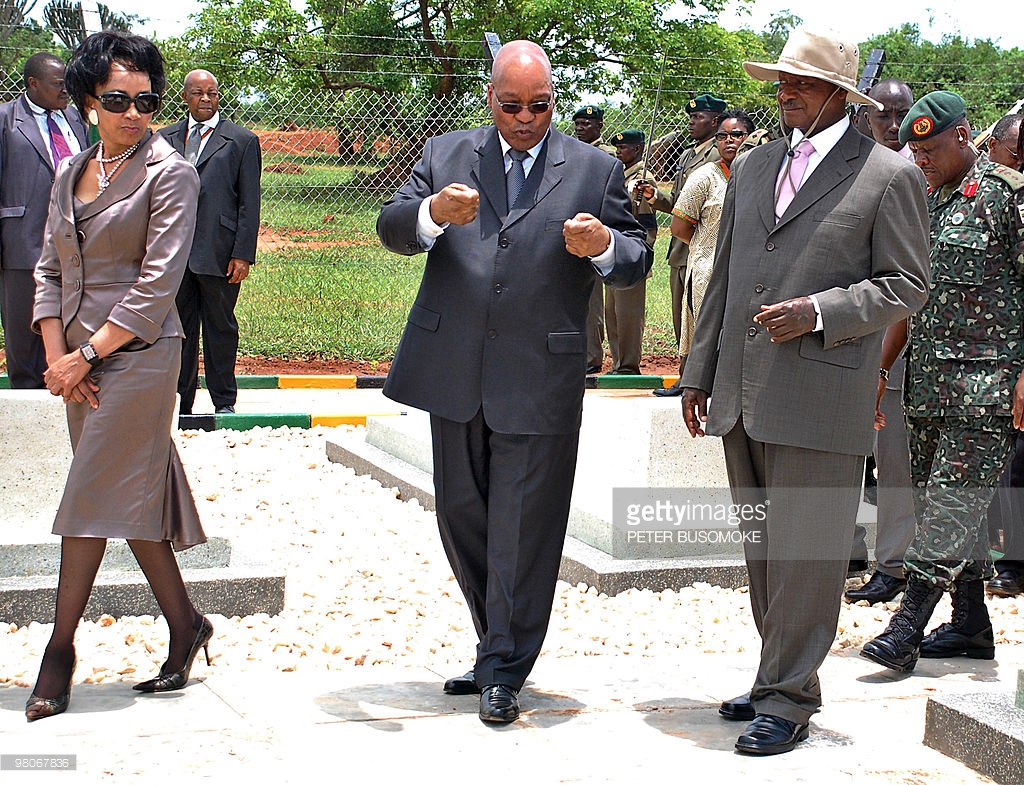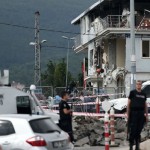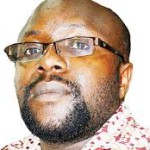Yesterday, President Yoweri Museveni made a hasty two-day working visit to South Africa, and while there he held ‘bilateral discussions on issues of mutual interest to Uganda and South Africa’ with embattled South African President Jacob Zuma.
As I spoke to some political observers, they were keen to illustrate how Mr Museveni’s visit could have positively tilted President Jacob Zuma’s political fate, in the process enabling him to retain both the South African Presidency and the African National Congress (ANC) Chairmanship amid the serious protestations spread across the country’s political divide. The pundits point to Mr Museveni’s Pan-African credentials and ‘negotiating skills’ as his strongest point in trying to help diffuse crises in Africa including in Burundi, Somalia and South Sudan.
Anyhow, the historical relationship between South Africa and Uganda cannot be relegated to the periphery; the two countries share Pan-African credentials since the struggle for Independence started way back in the 1960s. Infact it is said that during the anti-Apartheid struggle in the 60s leading anti-Apartheid icon Nelson Mandela used to travel on a Uganda passport, issued to him by the Uganda People’s Congress (UPC I) of Milton Obote.
At the time Uganda and Dr. Obote in particular subscribed to the Mulungunshi Club, a select ‘pro-Africa Independence’ grouping in East and Southern Africa that had countries like Tanzania and Zambia, led by socialist-leaning Presidents Mwalimu Julius Kambarage Nyerere and Zambia Kenneth Kaunda, respectively.
Similarly, the current ruling parties in South Africa and Uganda, the ANC and the National Resistance Movement (NRM), share a history that is intrinsically related to the liberation struggle of South Africa, with the latter having provided both military (training) and logistical (arms) support to the ANC during the later stages of the anti-Apartheid struggle that culminated into the ANC taking state power in April 1994.
Indeed, by 1989 Uganda under the NRM was providing the ANC with a training wing for its fighters in the then ‘Luwero Triangle’, and today the Oliver Tambo Military Training School in Kaweweta is one of the lasting edifices of Uganda’s military support to the ANC, whose security boss at the time was Jacob Zuma, the current South African President. Also of import to note is that just like Zuma, most ANC ‘old guard’ are personally known to Mr Museveni, a man who honed his pan African credentials while still a student at Dar es Salaam University in Tanzania.
That said, over the past two years President Zuma, 74, has come under attack from various sections of South Africa including students in the higher institutions of learning; his party the African National Congress (ANC); the Nelson Mandela Foundation and part of his Cabinet, accusing him of among other vices corruption, influence-peddling, arrogance, poor economy and a downward spiraling trend in the political opportunities of the ANC. The president has denied any wrongdoing and said he would go to court to challenge the report.
Indeed, the political underbelly in the ANC in regard to Mr Zuma’s alleged miscreant acts had swelled to near-bursting proportions and just last week the party convened the 86-strong National Executive Committee (NEC), the top-decision-making organ, to decide on Mr Zuma’s fate.
The three-day NEC meeting that began Friday was still ongoing by the time President Museveni jetted into South Africa on Monday. But the situation thawed, and for now Zuma is in Cuba attending the funeral of Fidel Castro, another fiery anti-Apartheid crusader who also contributed immensely to other liberation struggles in Africa.
So, that noted, could it be by design that as Zuma was facing the toughest test to his seven-year presidency, Mr Museveni makes a grand entry in South Africa and his presence and interaction with other ANC stalwarts, swings the tide in Zuma’s favour?
For starters, for all his support to the anti-Apartheid struggle Mr Museveni enjoys a good camaraderie with most old ANC stalwarts, who recall his support during the late 80s. It is some of these same stalwarts, reportedly including some of his cabinet members, who were baying for Mr Zuma’s blood.
So, in his free time could Mr Museveni have talked to some of his senior and old ANC friends about President Zuma’s woes and how his loyalists could navigate the stormy waters?
Anyway, for now, and indeed after Mr Museveni’s visit, Jacob Zuma remains President and ANC Chairman.








Well pointed this out! Thought I was alone in thinking so. Twas quite a hasty visit in light of the Rwenzururu shenanigans.